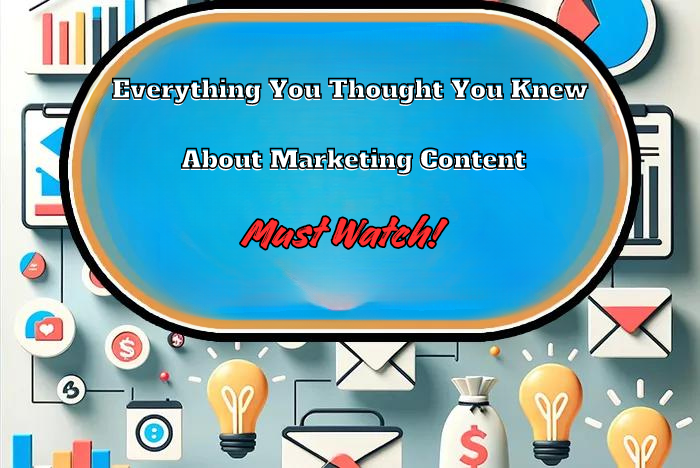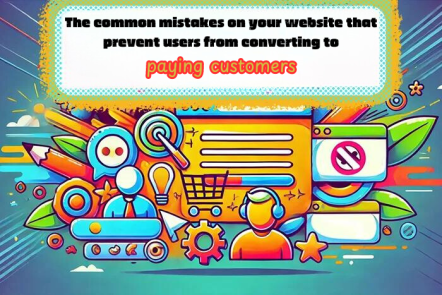Content is the key to success on the internet, but not all content is effective. When it comes to website content, there are a few key principles that are important to pay attention to. In this article, we will share tips for creating website content that works. But first, let’s define what website content is and why it is important.
What is website content?
Website content is almost anything that appears on a website that provides some information. This can be text (like the blog post you are reading now), images, audio recordings, videos, or infographics.
The job of your content is to welcome visitors, entertain them, and make sure they want to stick around. When done right, it keeps visitors on your site longer and helps turn them into customers.
How to write online marketing content?
-
Define goals
The first thing you need to do is understand why you are writing what you are writing. Defining the ultimate goal at the beginning of the process helps you create great content because everything you create will have a purpose.
Some questions you might want to ask yourself when defining the purpose of the content you will create:
- Do you want to inform, entertain, or persuade visitors? The answer to this can shape the tone and style of your writing.
- What action do you want the reader to take? Do they need to sign up for a newsletter, purchase a product, or simply share your content? This will define the call to action (CTA) you choose to include on the site.
- Are you aiming to establish your brand as an authority in your field? If so, you will need to create in-depth, research-backed articles.
Answering these questions will allow you to create a clear roadmap for your content. Make sure it aligns with your broader business goals.
-
Understand your audience
Once you have defined your goal, you need to understand your target audience and who your buyer persona is because knowing your audience allows you to determine the best ways to communicate with them and persuade them to make a purchase.
Understanding your audience can help you tailor your language, tone, and examples to what is most likely to resonate with this specific demographic. By effectively using this information, you can create online marketing content that is engaging, relevant, and speaks directly to the persona of your audience. It is important to emphasize that if the content is not written in a personalized way for the target audiences, there will simply be no conversions on the site because the content will be generic. And this is the answer to business owners who do not want to invest in content for whatever reason.
-
Research competitors
It is essential to explore your competitor’s websites to see what kind of content they are publishing.
- What kind of content Are they creating? Find out what formats they use, and what can you learn from it?
- what topics they cover? they publish, this can give you insights into your market and help you shape your content strategy.
- How do they structure their content? Do they use long-form content or stick to short and concise pieces? Do they use a lot of subheadings or bullets to make their content easy to read?
- What is the tone and style of their content? Is it formal and authoritative or casual and friendly? Does the tone align with their brand and audience expectations? A comprehensive analysis of your competitors’ content can help you identify gaps in your strategy, generate new content ideas, and help you understand what resonates with your target audience.
-
Grab the reader from the first line
Just as a good post pulls you in from the first sentence, your website content needs to grab your reader’s attention right away, so they don’t abandon the page. You can do this with a strong, bold statement that will pique interest, shocking numbers and facts, or an appeal to the audience’s emotions.
-
Scannable content
The way you present your content is important – people read differently online than they do with physical text. Most people scan instead of read. So, you need to include subheadings, short sentences, paragraphs, and white space between paragraphs to make sure your text is easy to scan.
-
Easy navigation
Help visitors easily navigate your website to ensure a quality user experience. Be sure to include links within your content that point to related pages on the site. This helps with search engine optimization (to get visibility in search results) and is a great way to guide your visitors to other content that may be relevant to them.
-
Personal writing
Connect your brand with visitors to make your content feel more personal and help build trust. You can do this by:
- Using active voice: Write in a sentence structure like this: “You can contact us” instead of “We can be contacted.” The second uses passive voice and sounds more formal, but active voice is easier to read and sounds more personal.
- Using first and second-person person writing: Use “you” to address your reader directly, “we” to speak from the company’s perspective, and “I” for a more individual voice.
-
Clear language
Keep your website content simple so your readers don’t get frustrated or confused. using simple language will help your readers better understand what you are saying, and this applies to content about your products and their benefits or any online marketing content you publish.
Use short sentences to convey messages clearly, limit the use of adjectives, provide examples, and avoid using jargon so that everyone can understand the content.
-
Call To Action
Your website content should encourage some kind of action. Maybe you want visitors to make a purchase, leave their contact information, or join your email list. By including a clear call to action using words like “join,” “subscribe,” or “get a free call” you can help them take that next step.
-
Search Engine Optimization (SEO)
While it’s important to focus on your website visitors, it’s equally important to optimize your content for search engines. This helps ensure your content appears on search engine results pages, ultimately driving more traffic to your site.
Include keywords throughout your content, these keywords should appear in your headlines, subheadings, meta tags, and within the body of your content itself. Add relevant internal links throughout your content. Don’t forget to optimize your images.
Conclusion
Writing online marketing content, specifically for websites, is a crucial aspect of digital marketing. The success of any online business relies heavily on creating effective website content that informs, engages, and converts its audience.
While it may seem complex, there are digital marketing agencies that specialize in content creation. For any questions or concerns, DIGITWOW is here for you.




